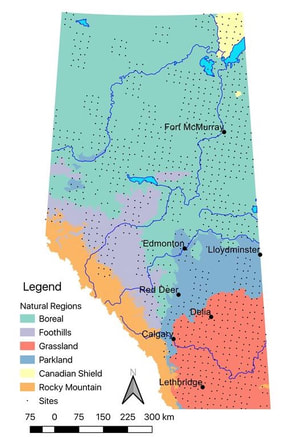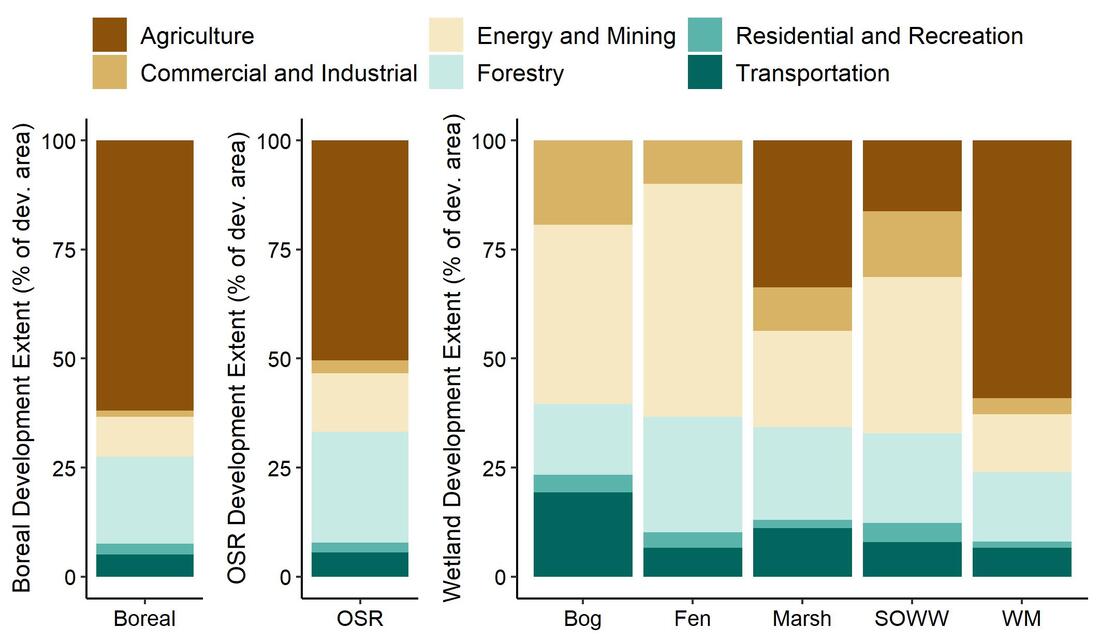|
In another project, we examined how plant diversity varied across a province-wide human development gradient. Wetland vascular plant richness peaked at intermediate levels of surrounding human development, and was lowest in wetlands surrounded by the least and most development. The opposite was observed for niche breadth, however. Wetlands surrounded by the least and most development were composed of highly specialized species with narrow niche breadths, while wetlands surrounded by intermediate level of human development were composed of species with broad niche breadths. |
In collaboration with Danielle Cobbaert (Alberta Environment and Parks) and Rebecca Rooney (University of Waterloo), I am investigating the impacts of human development on wetlands in Alberta, Canada. This project aims to improve our understanding of the direct and indirect impacts of human development, and especially mining in the Oil Sands Region, to wetland health and functioning. Using vegetation data collected by the Alberta Biodiversity Monitoring Institute, we examined how wetland plant diversity has responded to land use changes in the Oil Sands Region. While a relatively small proportion of remaining wetland area in the Oil Sands Region is developed, this development is having profound impacts on wetlands. Wetlands are being concurrently exposed to multiple disturbance types, each of which may impact wetland ecology in different ways. The plant communities of bogs and fens are particularly sensitive to energy and mining development, while marsh, shallow open water wetland, and wet meadow communities are sensitive to surrounding agriculture. All wetland classes show reduced plant conservatism in areas of extensive human development. |
Ficken, CD and RC Rooney. 2020. Linking plant conservatism scores to plant functional traits. Ecological Indicators. 10.1016/j.ecolind.2020.106376.
Ficken, CD, D Cobbaert, and RC Rooney. 2019. Low extent but high impact of human land use on wetland flora across the boreal oil sands region. Science of the Total Environment. 10.1016/j.scitotenv.2019.133647.
Ficken, CD, D Cobbaert, and RC Rooney. 2019. Low extent but high impact of human land use on wetland flora across the boreal oil sands region. Science of the Total Environment. 10.1016/j.scitotenv.2019.133647.


